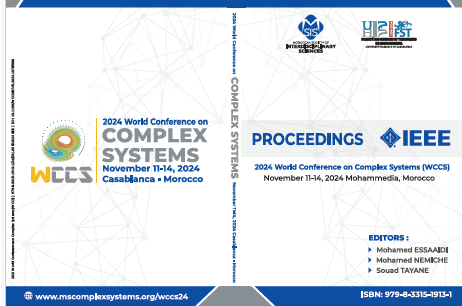Below is an overview of my research activities, including research interests, journal special issues, publications, books, and Ph.D. supervision.
Advisor of the following Ph D Graduates:
Smahane JEBRAOUI
A Network Agent-based Model for Moroccan Inbound Tourism (2025)
Abstract: Tourism is a key driver of the global economy, and in Morocco, it plays an essential role by contributing significantly to the gross domestic product, creating jobs, and fostering regional growth. Despite these economic benefits, Moroccan tourism faces challenges related to the uneven distribution of visitors, with certain regions attracting disproportionate attention. This study investigates the impact of personal preferences, environmental elements, and social networks on tourists' decision-making. By developing
an agent-based model (ABM), the study aims to simulate tourist behavior and examine visitor flow patterns across Morocco’s various destinations.
The proposed ABM integrates individual preferences with social and environmental factors, offering a dynamic view of the factors guiding tourists’ destination choices. Six hypotheses form the foundation of this research, exploring the influence of
environmental factors, destination attractiveness, social influence, promotional impact, and negative reviews on tourist decisions. By simulating various scenarios, we aim to
identify key factors influencing tourist distribution and recommend strategic interventions for achieving balanced tourism development across Morocco.
This research offers a deeper understanding of how social and environmental factors drive tourist flows, providing actionable insights for policymakers and tourism marketers to create more balanced and sustainable tourism strategies across Morocco.
Keywords: Agent-based simulation, Moroccan inbound tourism, Decision making, Fuzzy analytic hierarchy process, social influence, social networks.
Saida HACHIMI EL IDRISSI
An Agent-Based Model of Competitive and Cooperative Social Behaviors in Conflict Situations (2024)
Abstract: The formation and evolution of complex societies have long fascinated scholars in fields such as anthropology, archaeology, and history. Agent-based modeling is a powerful tool that can help us understand the emergence of complex societies from primitive and smaller groups. The main objective of this thesis is to validate the rise of complex societies based on the Freudian hypothesis, which suggests that technological progress increases with the augmentation of the repression of satisfaction, utilizing an agent-based model.
Drawing on Sigmund Freud's book titled "Civilization and Its Discontents," which argues that the repression of human desires is necessary for the formation of civilization, our model is based on a causal chain that begins with the intensification of warfare, leading to increased repression of individual satisfaction (the repression of competition between society members) within the group/society. This repression, in turn, fosters significant technological progress within the group, ultimately resulting in the rise of complex societies.
To validate the Freudian hypothesis, we constructed an agent-based model consisting of a large number of primitive societies interacting within a grid-based environment. Each cell/ polity represents an independent polity. At each time step, border cells/ polities have a chance to initiate an attack and take over a neighboring cell, simulating the competition between societies. Our simulations demonstrate that the repression of satisfaction indeed facilitates cooperation within the group, enabling them to expand at the expense of others and promoting the rise of complex societies.
We also incorporated geographical factors into our model to explore their impact on the rise of complex societies. These factors include terrain, water sources, and natural resources, allowing us to gain a deeper understanding of how environmental factors shape social organization.
In summary, the results of our model have enabled us to simulate the formation of empires in the ancient world based on the Freudian theory.
Ahmed M’HAMDI
Un modèle à base d'agents pour simuler l’évolution
sociale humaine: Dualité Nord/Sud, Diversité Est/Ouest
Et Processus De Migration (2018)
Abstract: The main theme of this thesis is trying to describe, discuss and understand the history of human social evolution using agent-based modeling. Agents become a major paradigm of social simulation which allow us to model the complex social phenomena according to the bottom-up approach. Certainly, one of the key points of the bottom-up approach is the emergence of macro level phenomena from micro level actions and interactions. The main objective of this work is to build a Virtual Social Laboratory, from Rafael Pla-Lopez Social evolution model, in order to explore the social evolution of a set of artificial societies/agents that evolve within a grid of
cells which are characterized by a level of natural resources (virtual environment).
This laboratory can help to explore and understand the East–West duality, the North–South Divide, the Human migration process, the globalization and some possible human social evolution.
With our model, we have obtained a satisfactory representation of the social evolution and its diversity in the axes East / West and North / South. The model also simulates the collective migration of a society in a crisis situation (strong repression or lack of natural resources). The model can also be used to understand:
(1) The processes involved in the social evolution of humanity and the differentpossible trajectories.
(2) The conditions that favor the perpetuity of globalization
with the most repressive state.
(3) The conditions that favor the possibility of overcoming repressive globalization by another free scientific globalization based on satisfaction instead of repression.
(4) Conditions that favor the ecological hecatomb.
Keywords: agent-based simulation, reinforcement learning, social evolution, repression,
needs satisfaction, diffusion, East / West duality, North / South diversities,
collective migration, globalization.
Fatima Ezahra SFA
Un Modèle d'apprentissage par renforcement pour simuler le changement de l'utilisation du sol
(2018)
Abstract: Better understanding the evolution of land cover is a priority concern in the field of land use
change study. This evolution can be the result of interactions between major factors (driving forces). The study of land use change is included in territorial planning to inform planners
and policy makers of possible developments they will face. Land use models are useful for reasonable land use management to optimize future land management decisions.
In this thesis, we present an original theoretical model of reinforcement learning combined with macroscopic cellular automata to simulate land use change. Our model can serve
as a virtual environmental laboratory for understanding, exploring, and predicting land-use change. This model has been adapted and implemented under NetLogo to simulate the spatiotemporal dynamics of land use change in the Drâa Valley, Morocco. We simulate two scenarios for the period 2016-2021 : a scenario without zoning without any restrictions and a scenario
with zoning by protecting the oasis and its agricultural spaces against construction. According to a visual comparison, the results of the simulations indicate a good coherence between
the simulated and the observed data. The conversion of agricultural and pastoral areas to buildings will be the main features of change in the future (by 2021), hence the importance
of protecting agricultural areas
Keywords: Reinforcement Learning, Cellular Automata, Land Use Change, Complex Systems


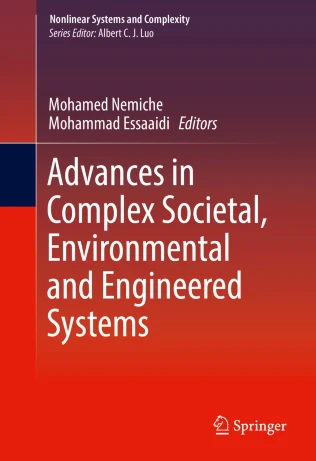
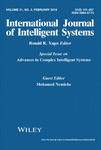
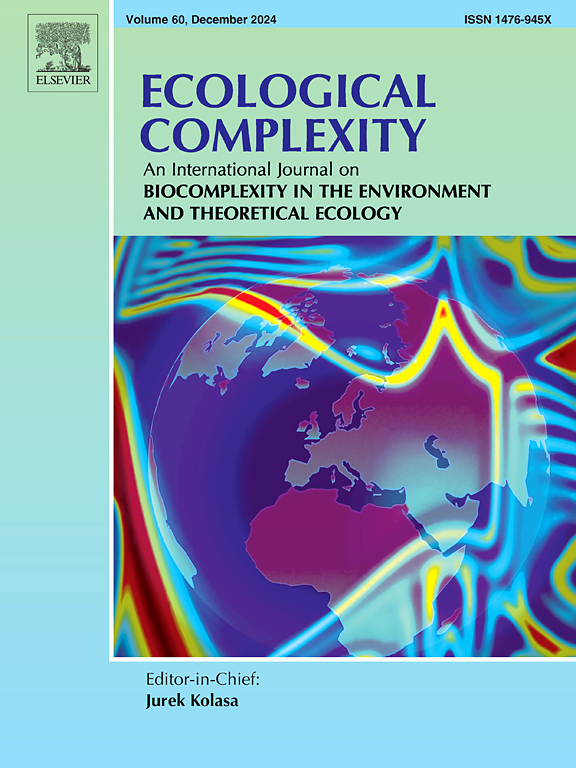
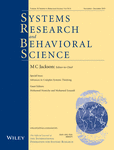
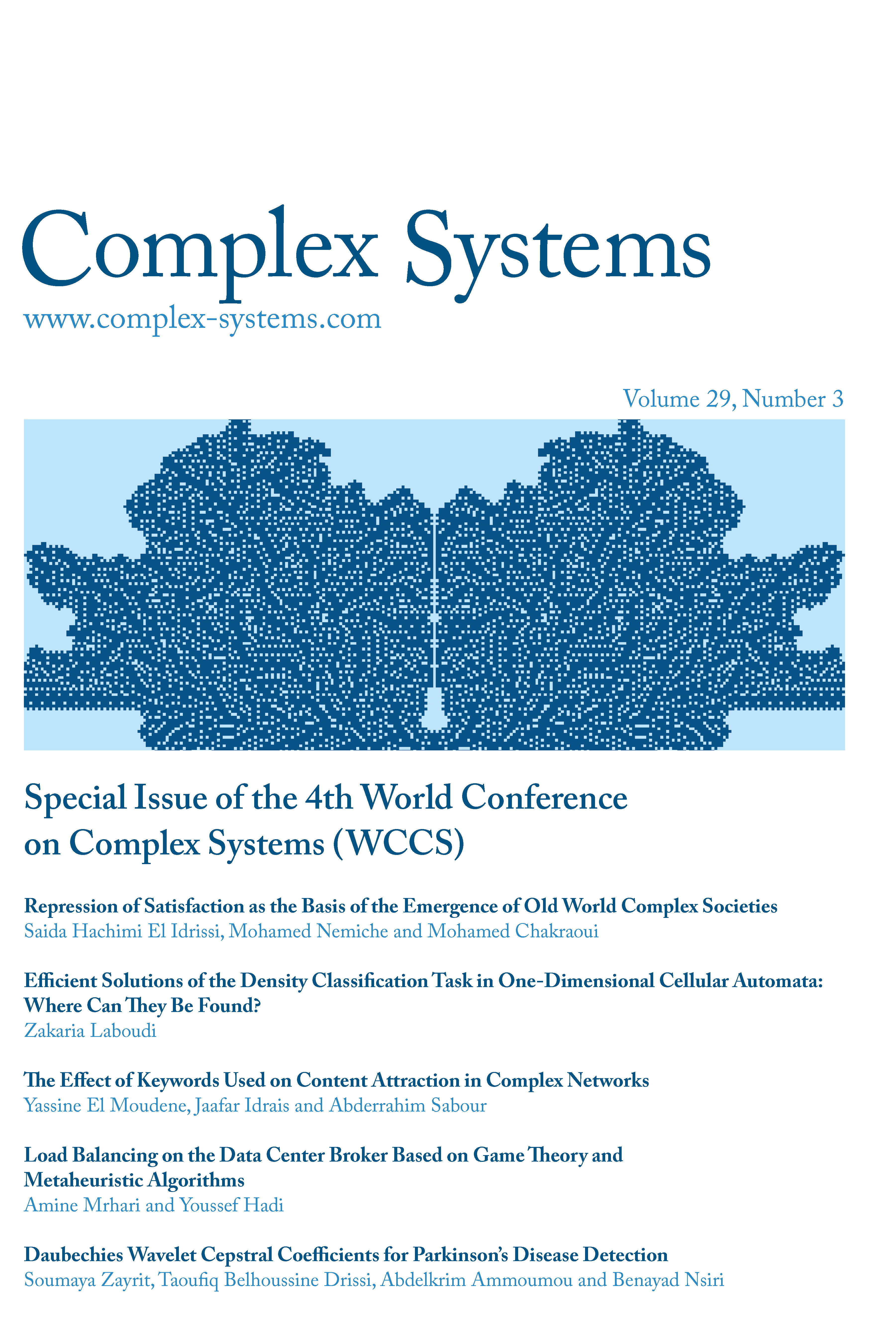

 Advances in Complex Systems 2025 (world scientific)
Advances in Complex Systems 2025 (world scientific)